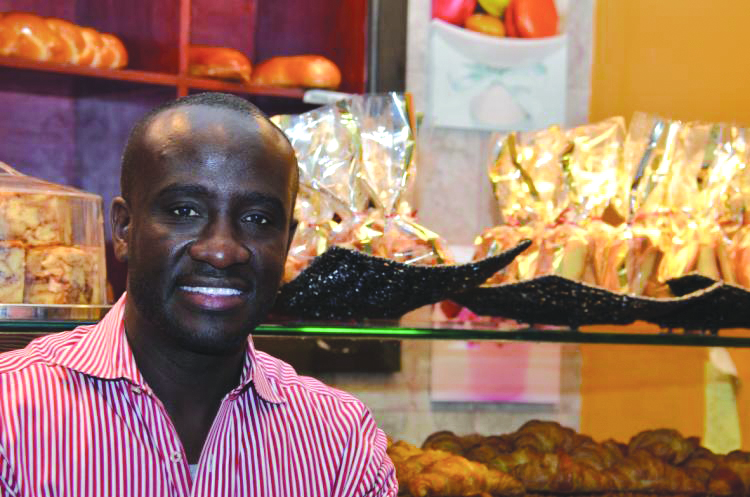At the age of 17, Gorgui N’doye, left home in Senegal to be an engineer in New York, but he ended up selling make-up to actors and opening the first Senegalese-French restaurant in Harlem. These days, in his late forties, the unlikely entrepreneur is back in Africa exporting peanuts to Asia.
In 2001, N’doye, who qualified as an electrical engineer from the City College of New York, worked as a salesperson in a company selling make-up to actors in the Big Apple.
“As I travelled Harlem to work there weren’t good restaurants around. I saw a business opportunity and decided to sell my shares at the company. I had contacts here and there, people know people, I worked with them in the build-up and opening of Patisserie des Ambassades in what we call Little Africa. It has been 16 years of hard work since then,” says N’doye.
“This business was needed; there was a demand for it from the African community. The Federal Government contributed 30 percent into the business.”
Many cast doubt on N’doye’s venture except his wife Ken Alice N’doye, who was a caterer making Senegalese food platters for birthdays and weddings.
Loading...
“Of course people questioned my judgment but I just focused on my work because I believed it was a good thing. Now they know I am a hardworking person,” he says.
It took N’doye two years to get the restaurant at full steam. It was difficult.
“When we first came here in Frederick Douglass Boulevard, Harlem, in 2001, this area was bad, we were the first African restaurant in a gangster’s paradise,” says Ahmadou Ndiaye Jean, the restaurant’s manager who’s also Senegalese.
“In the seventies, Senegalese were the first Africans to land in downtown Manhattan. Most were taxi drivers; they were almost the only daring ones to move into Harlem, then undermined by drugs and criminality. But the rent was cheap. In the late nineties a new wave of other nationalities joined in. At the end of the decade federal authorities revitalized Harlem by renovating the buildings and strengthening law enforcement. The neighborhood is again dynamic and attractive to the middleclass,” says Ahmadou.
“We started the business with less than 10 people and these days we have about 50 staff, a majority of whom is from Senegal. We are open 20 hours. Basically, we just close to clean up. This place is so busy that we don’t have time to close. This is a Little Africa.”
“If it doesn’t kill you, it makes you stronger,” says N’doye about his survival in the crime-ridden Harlem.
“South of Harlem has majorly changed over the years. Now we are living in a gentrification that is better than before 2000. It is now called an entrance to Manhattan. After 16 years we have built very diversified customers. We have been blessed,” says N’doye.
In 2005, N’doye was the entrepreneur of year with the Small Business Administration (SBA) in New York.
In 2009, N’doye returned to Senegal where he explores other business opportunities.
“Since I returned back to Senegal I ventured into a different business of exporting peanuts to Asia and South Africa,” says N’doye.
“I learned a lot from the restaurant business, the interactions I had with African customers helped me with other business ideas back home. There’s a lot to explore in Africa,” he says.
So, the life of this former expatriate entrepreneur took a big circle from Senegal and the Big Apple.
Loading...
